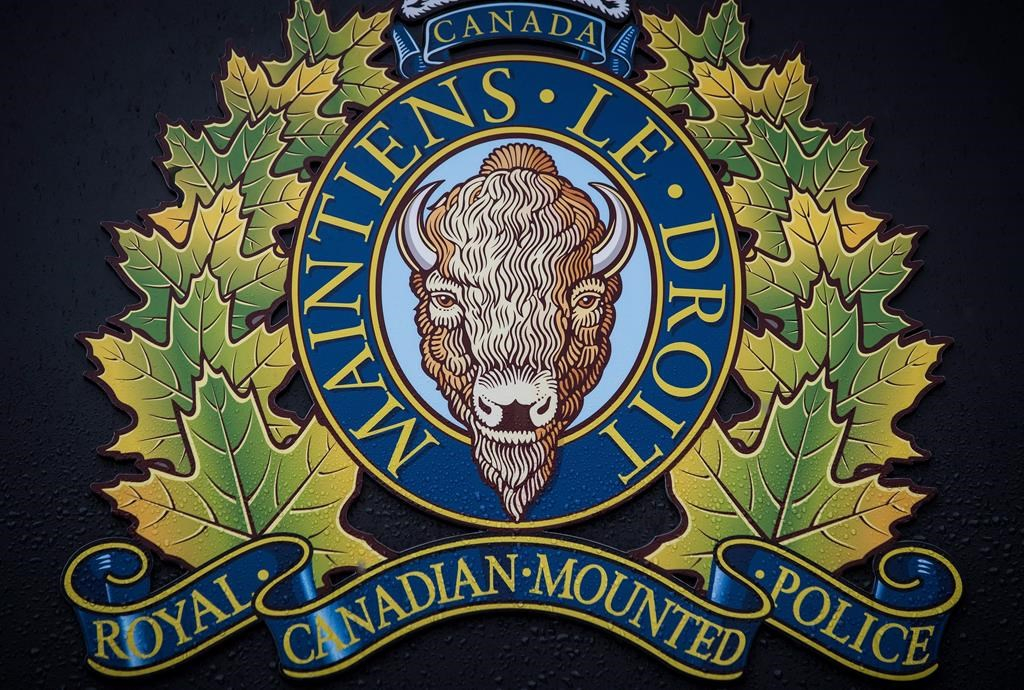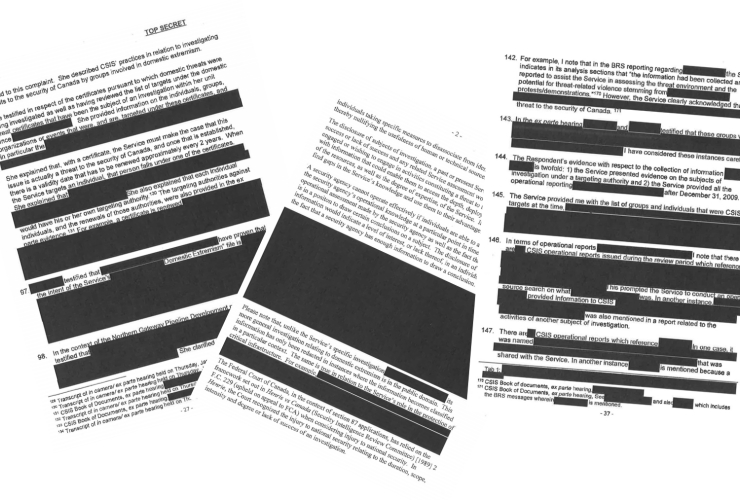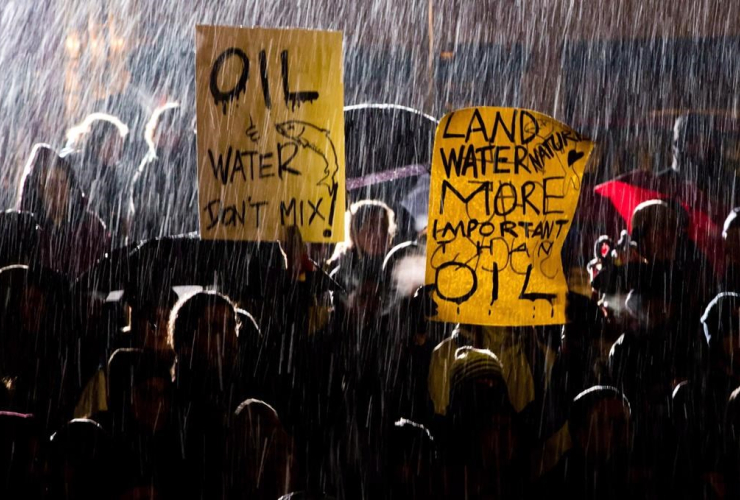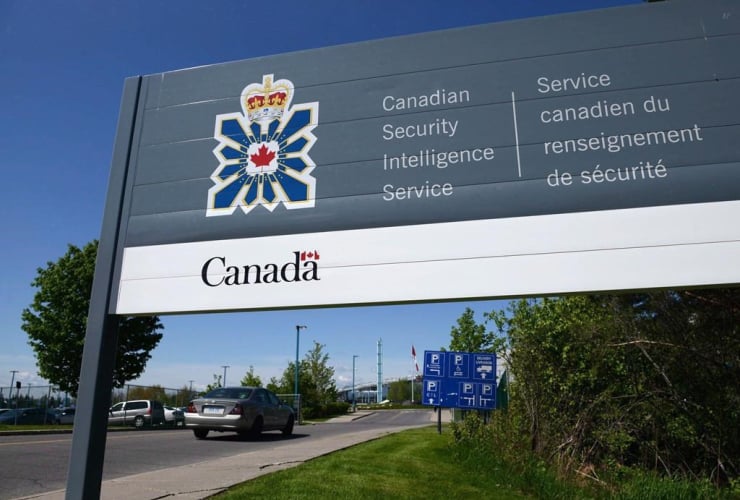The RCMP has been sitting for two years on a watchdog report into alleged Mountie surveillance of anti-oil protesters, a civil liberties group charges.
In a letter this month to RCMP Commissioner Brenda Lucki, a lawyer for the British Columbia Civil Liberties Association laments the "inordinate delay" that has effectively obstructed the report's release.
The association lodged a complaint in February 2014 with the Civilian Review and Complaints Commission for the RCMP. It alleged the national police force improperly collected and shared information about people and groups who peacefully opposed the planned Northern Gateway pipeline project and attended National Energy Board meetings.
The association said monitoring, surveillance and information sharing with other government agencies and the private sector created a chilling effect for those who might wish to take part in hearings or other public discussions on petroleum issues.
The commission launched a public interest investigation and completed an interim report into the matter in June 2017, forwarding it to the RCMP for comment on the conclusions and recommendations.
The commission cannot prepare a final report until the RCMP commissioner responds, which also means the findings can't be disclosed to the civil liberties association or the public.
In March, Paul Champ, a lawyer for the association, wrote commission chairwoman Michelaine Lahaie to express concern that more than five years had passed since the complaint was filed, saying the RCMP may have violated the fundamental freedoms of Canadians exercising their democratic rights.
"It is our view that this interminable delay undermines the credibility of the CRCC and, more importantly, calls into question its ability to fulfil its primary function: ensuring accountability of the RCMP and fostering public trust and confidence in Canada's national police force," Champ's letter said.
"It is regrettable that the CRCC may not be treating this complaint with the seriousness it deserves."
After receiving no reply, he followed up with another letter in May.
Nika Joncas-Bourget, the commission's director and general counsel for reviews, told Champ in late May the watchdog shared his frustration with the Mounties.
"We can assure you that we have repeatedly expressed concern to the RCMP regarding the time it is taking to receive the Commissioner's Response," she wrote.
Joncas-Bourget said once the commission receives Lucki's response, it will "promptly issue" its final report, something it usually does within 30 days of getting the top Mountie's input.
The RCMP had no immediate comment on the reason for the delay or when the commissioner's response might be coming.
In his Aug. 9 letter to Lucki, Champ noted the RCMP Act imposes a legal duty to provide a response to the commission's interim report "as soon as feasible."
"In short, the RCMP has been sitting on this report for over two years and effectively obstructing its release to my client and the public," he wrote.
"It is our view that two years for your review and response to the CRCC's interim report is clearly an unreasonable delay not contemplated by the statute, whether the delay is due to insufficient allocation of resources or any other cause.
"This delay is all the more serious when the allegations concern fundamental rights and freedoms protected by the Canadian Constitution."
The civil liberties association also complained in early 2014 about improper monitoring of anti-pipeline activists by the Canadian Security Intelligence Service.
The review committee that oversees CSIS dismissed the complaint in 2017, prompting the association to ask the Federal Court to revisit the outcome, a proceeding that is ongoing.
It is always strange when
It is always strange when governments, are more responsive to the needs of re-election than to their primary responsibility to the citizens they are elected to represent. This distortion of the foundations of democrary has plagued every instance of democratic governance one can examine.
This primacy of retaining/gaining power overwhelms every activity of political organization - which is one of the reasons modern democracies are always engaged in battle against their own citizens who are trying to sustain their constitutional rights through the courts.
Politics, like the rule of law and the judicial apparatus are always adversarial processes. Democracies and all the people living in them are wasting valuable time, effort and resources in this endless jockeying for power and "winning" when mediation, consensus building, might be more effective.
Electoral Reform...yes...
Electoral Reform...yes....Canadians voted for JT because he campaigned on bringing in Electoral Reform. ALREADY ! Of course we already are for electoral reform. It was also shown after the Town Hall tours....done by the MPs in their riding...as well as the non-partisan electoral reform committee that did all the ground work & research necessary & submitted their findings/results...that the people wanted some form of Prop Rep (Proportional Representation). But JT didn't like that result. So he turfed it. He's quite the dicatator with his Majority power, eh?





Comments